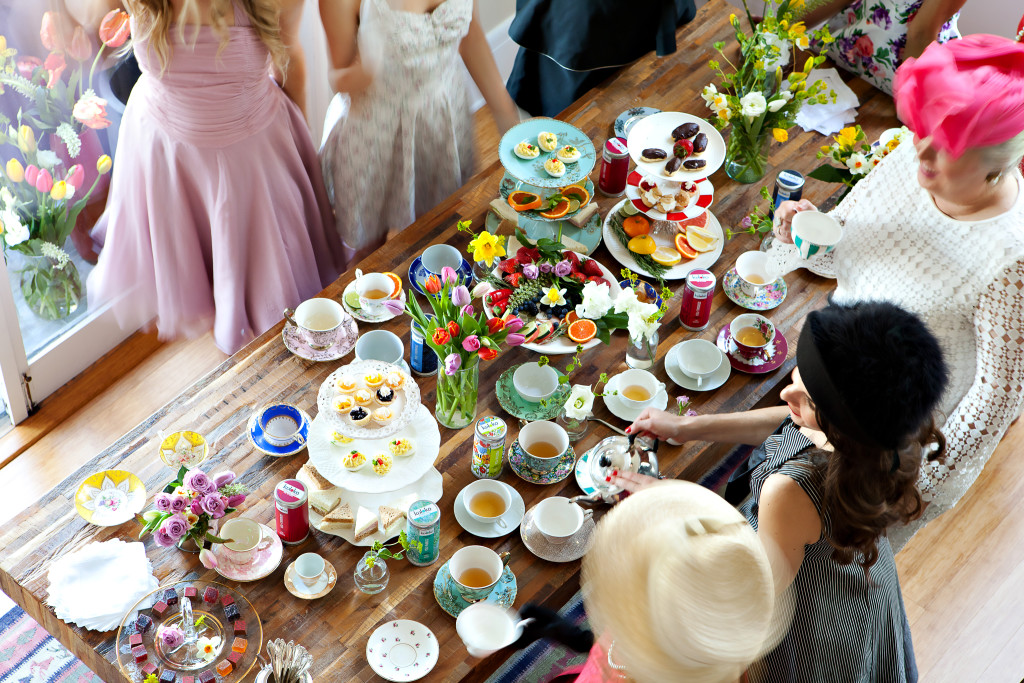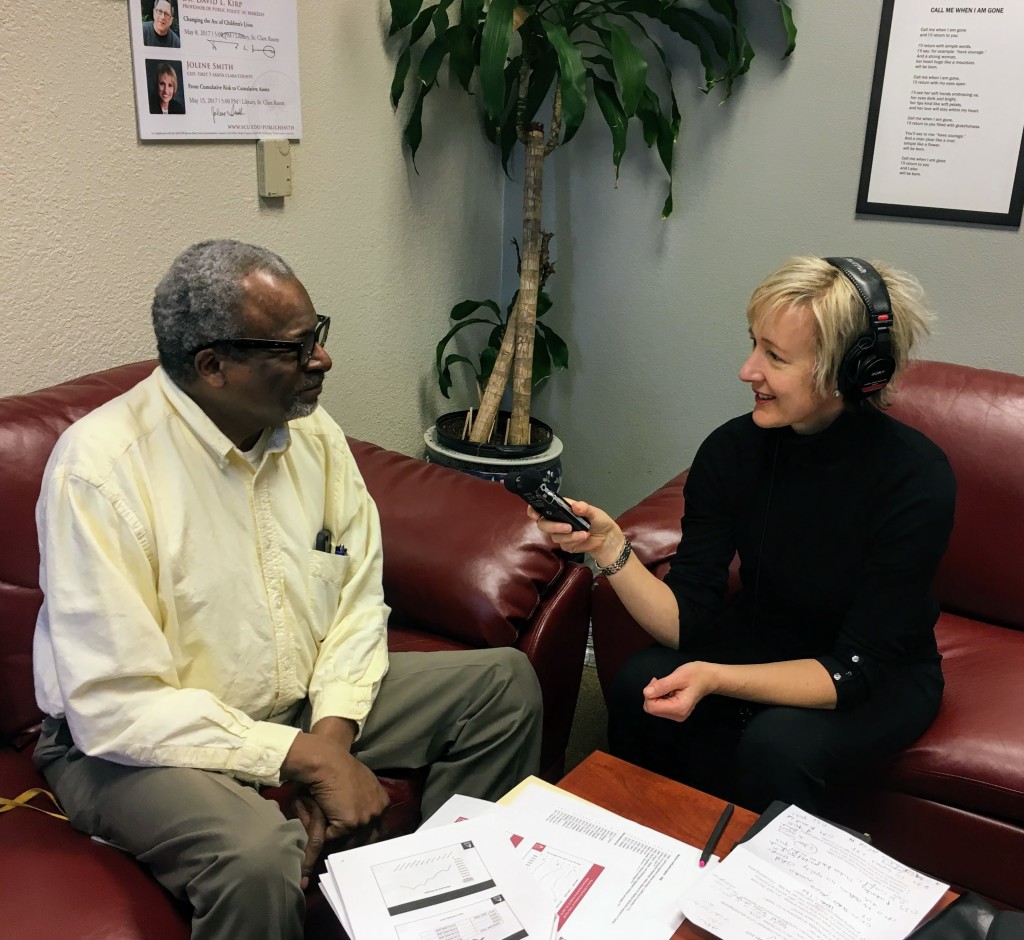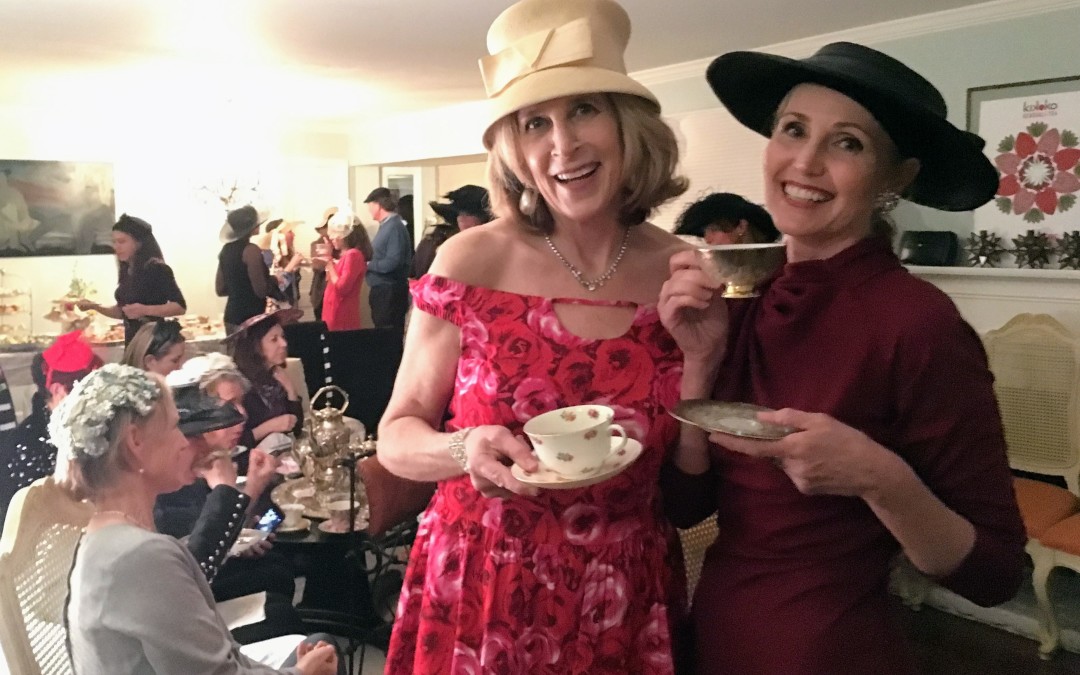This year, California became the 6th state in the U.S. to make it legal to sell marijuana for recreational use. The BBC World Service asked me to explore an all-female startup that’s hoping to become a global power house for “high tea.” Amanda Jones and Jen Chapin, the Kikoko cofounders say that their marijuana-infused teas can help with sleep, pain, mood and even sex. I interviewed an enthusiastic fan at a Silicon Valley high tea party who raved about her spectacular orgasms! But is it addictive and what are the risks? My report aired today on the BBC’s Health Check.
Listen to the BBC podcast (High Tea segment Starts at 8:54)
Or listen to the shorter High Tea segment below:
Here’s a transcript of my report (edited for length and clarity):
BBC Health Check Host, Claudia Hammond: On New Year’s Day, California became the 6th state in the U.S. to legalize marijuana for recreational use. With an estimated potential market of $7Bn, it’s big business and queues soon formed outside dispensaries, with people keen to buy not just marijuana in tobacco and oils, but in brownies and even gummy bears. Now you can go to a “high tea” where the tea bags contain more than just tea leaves. So we sent reporter Alison van Diggelen along to ask what impact marijuana can have on our health?
Alison van Diggelen: Here in an affluent suburb of Silicon Valley, women in fancy hats are enjoying a little tea party. The product – Kikoko – offers you “high” tea: tea bags with microdoses of marijuana that can give you a buzz and more. Here’s Amanda Jones, one of the cofounders of Kikoko….
Amanda Jones: This is not your mother’s Earl Grey tea…however it’s good for your mother. My mother does it almost every day, she’s 82. What we offer is a cannabis infused herbal tea, very low dose… “Ritz with a twist” is what we call it. It’s very refined, all organic, top-shelf herbs, blended for the particular ailments we’re trying to treat.
Alison van Diggelen: Amanda, and her all-female team, say their tea blends can help with: sleep, pain, mood and even sex….The teas have between 3 and 10 mg of THC. THC – or Tetra-hydro-cannabinol – is what gets people high. At elevated doses it’s also been linked to anxiety and an increased risk of mental health problems. The other key substance in marijuana is Cannabidiol, or CBD – sometimes recommended to help with pain or inflammation. A small trial recently conducted at the Institute of Psychiatry in London found this substance acts as an anti-psychotic and might counteract some of the negative effects of THC.
 Several Kikoko clients enthused about the tea’s healing powers – including Tara Kaplinski, a lawyer who started drinking the tea for pain relief and to get a good night’s sleep…
Several Kikoko clients enthused about the tea’s healing powers – including Tara Kaplinski, a lawyer who started drinking the tea for pain relief and to get a good night’s sleep…
Tara Kaplinski: I was taking a lot of ibuprofen for a wrist injury and I started to get pain in my solar plexus…so I went to the doctor and they said you can’t take Aleve (Naproxen)…you can’t take ibuprofen. So if you can’t take anything, then this is perfect. It does do the job, at least for me. It’s like a superfood…the health benefits are amazing…it’s better than having a beer, you’re not going to gain weight from it, be hungover in the morning…You’re not going to get frustrated with your children. I think it’s a healthier alternative.
Alison van Diggelen: Tracy O’Reilly – not her real name – is also a fan, but for quite different reasons. She’s a 55 year-old pharmacologist with expertise in toxicology.
Tracy O’Reilly: I took this “sensuali-tea” and it absolutely changed my life… I really had tremendous orgasms and I just felt wonderful afterwards and it lingered; giving me a pleasure that I didn’t think was possible post-menopause…
Alison van Diggelen: With the same partner?
Tracy O’Reilly: Yes! With the same partner. [laughter] Even the next day, I’ll feel very much like a woman who’s quite happy, put it that way…
Alison van Diggelen: Any negative effects at all for you?
Tracy O’Reilly: I limit my driving…I drink it at night and I don’t drive. It’s not a good idea especially if you’re new. I had never tried marijuana, but when I found out about this low dose tea and there’s so much science behind it…There’s been tons of clinical trials done. I was against cannabis when it was not legal, but now it’s legal I think it’s going to benefit a lot of people and probably save us some healthcare dollars…
Alison van Diggelen: Beyond California, 28 other states already allow the medical use of marijuana. Some surveys show that opioid use and mainstream medicine prescriptions have fallen in those states, as Americans seek more affordable alternatives for their ailments. But do medical researchers have conclusive evidence of its efficacy? I met with Professor Westley Clark, an expert in psychotic substances and behavioral health at Santa Clara University.
Professor Westley Clark: We know it does produce analgesia, pain relief…Do we have enough science to say 80% of people will have this result? We don’t! We need more evidence. Remember, that marijuana is a Schedule 1 drug, scientists have to go through extra hoops because it’s “illegal.”
Alison van Diggelen: He means it’s illegal at the Federal level and consequently, that that has been a huge barrier for researchers. So just how safe is it? And what about addiction and overdosing?
Professor Westley Clark: Marijuana can be addictive. It has low addiction potential, there are people who develop dependent syndrome, people who take it daily. It’s a small number. Can someone say marijuana is absolutely safe? No one’s going to say that, if they’re being honest. Is it safe for most people most of the time? Yes. There’s no credible evidence that you can overdose on marijuana.
Alison van Diggelen: As for other risks, Professor Clark reminds us that tea – and other marijuana edibles – avoid the impact that smoking a joint or vaping has on the heart and lungs. But he cautions…
Professor Westley Clark: Be wary of something that’s being marketed as “good for all that ails you.” Usually it isn’t… It’s a psychoactive substance, with psychoactive properties…you need to be careful. If you have an adverse reaction, you need to stop, and put yourself in a safe place or go you may need to go to an emergency room.
Alison van Diggelen: What’s his advice to those concerned about it triggering psychosis?

Professor Westley Clark: Some people might have a psychotic experience: paranoia, delusions. But when the effect of the marijuana wears off, it’s gone. There are people more vulnerable – it’s a minority of people – particularly people younger, under 18, they may be more predisposed, they’re more vulnerable. Their psychotic state may be longer in duration and the marijuana might help precipitate their first episode of psychosis. It doesn’t happen to most people. The younger you are, the more vulnerable you are…(or) if the THC content is much higher than you’re used to…If you have a family history of psychosis or severe trauma you might be more vulnerable.
Alison van Diggelen: What about people with bipolar, depression or who’re schizophrenic already?
Professor Westley Clark: They really should not use marijuana.
Alison van Diggelen: Professor Clark points out that 24 Million Americans currently use marijuana on a regular basis and many people want it legalized, just like other popular psychoactive substances like alcohol or tobacco.
Professor Westley Clark: We need more research and less mythology and less hysteria so we can educate the public with good science. We don’t need to continue to perpetuate “reefer madness”, and create upheaval in society where we’re incarcerating large groups of people based on fictions and myths.
Alison van Diggelen: What’s your advice to ladies considering high tea?
Professor Westley Clark: If they’re adults and have no history of severe psychological problems, that’s up to them. The route of administration will probably allow them to have a more positive experience, because it’s slow… If you take too much, say you drink all the teapot, you may have adverse consequences.
Alison van Diggelen: Would you try it yourself?
Professor Westley Clark: Nah…I’m a little old for that…[laughter]
Fade out Atmos…Tea pouring, laughter at the party.
Gloria Webster: Cheers!
END
Find out more about High Tea and Marijuana from KQED’s Rachael Myrow
Meet some more remarkable women from our Fresh Dialogues Inspiring Women Series
NB: Fresh Dialogues podcast links are for illustrative purposes. Copyright of BBC reports remain with the BBC World Service.




